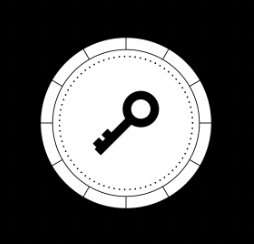The idea behind an Escrow Locker in the Title App is to provide a safe and convenient way to handle transactions involving digital title certificates (DTCs). These certificates are like special tokens that represent ownership of a property and have specific uses.
The Escrow Locker helps make sure that property transactions with digital certificates are secure and that the right people are involved in the process.
When dealing with Digital Title Certificates, there is a Parent DTC, which is kept by a governing agency, and a Child DTC, which is transferred between digital wallets when a property is sold. When a property is being sold, an Escrow Locker is created. The Seller puts the Child DTC in the locker for safekeeping. To ensure security and authenticity, the Buyer, Seller, and a Third Party (such as a law firm or escrow company) agree on the required number of approvals needed to transfer the DTC.
In addition, the setup of the Escrow Locker and the release of the DTC involve verifying the identities of the parties involved through biometric ID checks. This can replace the traditional notary system, mitigating fraud risks. Currently the item being traded between the parties is the DTC, but the Escrow Locker can also be used to transfer all of the funds related to the transaction.
The Escrow Locker also facilitates the addition or deletion of changeable files within the associated DTC’s property record file. For certain actions/documents affecting property titles, an Escrow Locker is mandatory, with all parties confirming the existence of the document. This might include something like a recorded easement or loan encumbrances. Modification of Escrow Locker rules allows flexibility, such as involving entities other than owners for specific documents like mechanics liens.
Optional features, like Title Insurance, ruled by smart contracts within the Escrow Locker, can be attached based on jurisdiction and risk levels. Fees for authorization tokens are envisioned to be small (around $10 per token), while setup costs for Escrow Locker creation are designed to be reasonable, even potentially free.
Although initially focused on real estate, the Escrow Locker concept can be applied to various assets, including cars, boats, contracts, cashflows, or any exchanged property of value.
In summary, the Title App’s Escrow Locker brings enhanced security, authentication, and efficiency to property transactions, revolutionizing the traditional notary system while providing flexibility for various assets and optional insurance features.
This article originally appears on the Title App Medium site.






